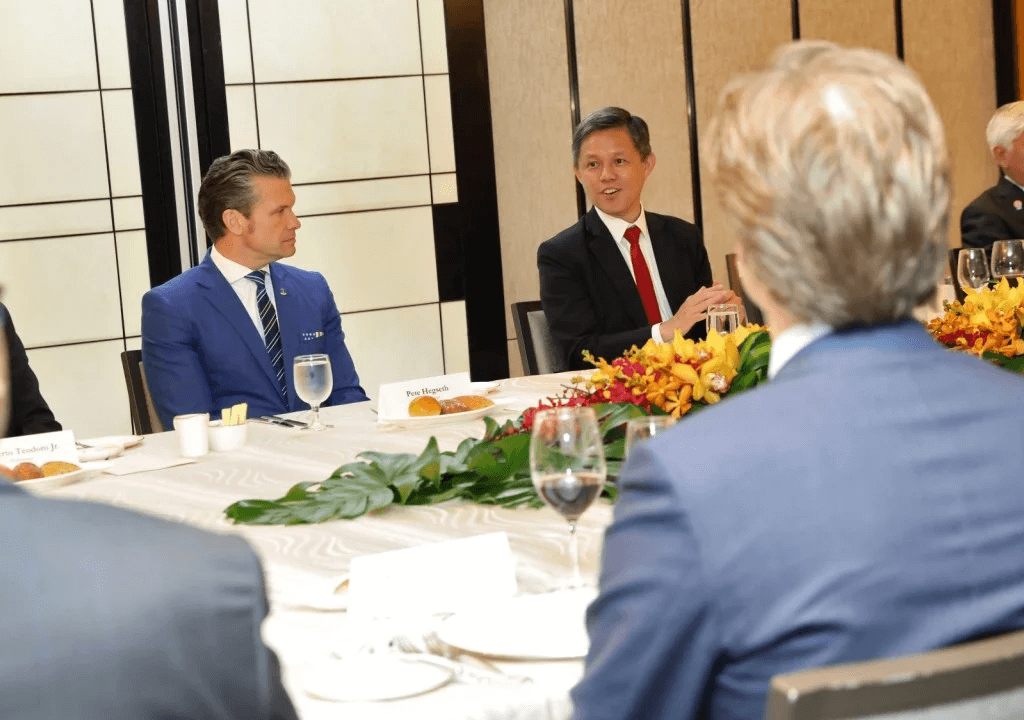As top defence officials from across the Asia-Pacific and major global powers convene in Singapore for the annual Shangri-La Dialogue, the absence of China’s top officials has become one of the summit’s most notable developments. Despite its central role in regional security, China has opted for a delegation from the People’s Liberation Army’s National Defense University to represent Beijing in his place. The decision has fueled speculation that China is reassessing the strategic value it places on the Shangri-La Dialogue.
Why is China not where it needs to be?
While China has actively participated in the Shangri-La Dialogue in recent years, this will be the first time since 2019 that it will not be represented by its defence minister at the annual security summit. No official reason has been provided for the absence, but several theories have emerged.
One theory relates to shifting geopolitical dynamics. With former U.S. President Donald Trump back in office, analysts suggest that Beijing may see limited strategic value in sending its top defence official—particularly with newly appointed U.S. Defense Secretary Pete Hegseth expected to attend. U.S.–China relations have sharply deteriorated, driven by renewed tariff disputes, escalating trade tensions, and Trump’s recent clampdown on Chinese international students at Harvard.
Another theory points to internal developments within China. Defence Minister Dong Jun, a PLA naval admiral, assumed the role in late 2023. His two immediate predecessors, Wei Fenghe and Li Shangfu, were both expelled from the Communist Party and dismissed from office over bribery and other serious disciplinary violations. Dong himself is seen as potentially vulnerable to the sweeping anti-corruption campaign that has rocked China’s military, leading to the removal of nine PLA generals and several top aerospace defence executives in the past year.
Dong’s absence from the Shangri-La Dialogue has fueled speculation that he may be under investigation. However, defence officials and analysts caution against drawing definitive conclusions, noting his recent overseas visits and the absence of any official confirmation linking him to misconduct.
For some observers, this year’s decision may mark a return to China’s earlier approach. Between 2013 and 2018, Beijing participated in the summit only at a sub-ministerial level—led by deputy chiefs and senior academics. While China remained present, this lower level of representation signaled a more reserved stance toward the forum, raising questions about how much strategic importance Beijing now places on the summit.
Is it important to China?
Attended by world leaders, senior government officials from more than 40 countries, as well as academics and business leaders, the Shangri-La Dialogue (SLD) is widely recognized as the Asia-Pacific’s leading multilateral forum on defence and security. The summit fosters a sense of community among key policymakers in the region and provides an opportunity for government delegations to hold bilateral meetings on the sidelines. Although primarily an intergovernmental forum, it also draws legislators, academic experts, prominent journalists, and business figures.
Over the years, the Dialogue has become one of the most influential independent platforms for international security policy-makers to exchange views.
China’s participation is often a focal point of attention. The SLD is one of the few global venues where senior Chinese defence officials face direct questions from foreign counterparts, scholars, and journalists—offering a rare window into Beijing’s strategic thinking. The presence of China’s defence minister also facilitates bilateral engagements with other nations.
This year, however, that opportunity will be absent. For China, the Dialogue—like for many other countries—offers a platform to present its views on regional and global security. Yet, Beijing remains acutely aware of the U.S.’s dominant presence at the forum, which may partly explain its decision to scale back participation. Analysts suggest that the strategic cost for China will likely be limited, as the defence minister primarily acts as a diplomatic envoy rather than a core decision-maker.
The US sharpens its rhetoric on China.
While Trump’s return has unsettled Europe—with renewed threats to pull back from NATO and abandon Ukraine—the U.S. approach in Asia has remained largely steady, anchored in efforts to counter China’s growing influence and support Taiwan. Although trade and tariff tensions continue, they have not significantly disrupted Washington’s broader Indo-Pacific strategy.
At this year’s Shangri-La Dialogue, U.S. Defense Secretary Pete Hegseth emerged as the central figure, reinforcing America’s assertive stance in the Indo-Pacific. French officials, too, delivered pointed criticism of Beijing, amplifying Western pressure.
In response, China seems to be pursuing a more cautious diplomatic posture—reducing its visibility in such forums and subtly seeking to downplay their significance.








